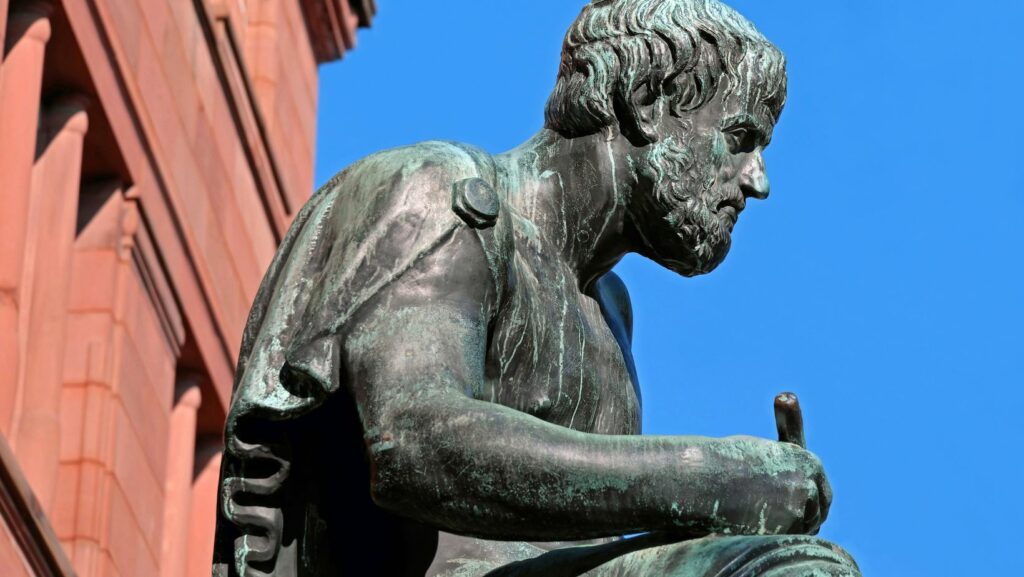
Philosophical Ideas
Exploring the realm of philosophical ideas unveils a tapestry of thoughts that have shaped civilizations and sparked intellectual discourse for centuries.

From the existential ponderings of Nietzsche to the ethical theories of Kant, philosophy delves into the fundamental questions of existence, knowledge, and morality. It’s a journey that challenges perceptions, invites introspection, and ignites a quest for deeper understanding.
In this article, delve into the captivating world of philosophical ideas as we unravel the complexities of ancient wisdom and modern interpretations. Discover how these timeless concepts continue to influence our perspectives on life, society, and the universe. Join us on a thought-provoking exploration that transcends time and space, delving into the profound insights that have shaped human thought and inspired intellectual curiosity.
Evolution of Philosophical Ideas Through History
Philosophical ideas have undergone significant evolution throughout history, shaping civilizations and intellectual thought for centuries. From ancient times to the modern era, philosophy has played a crucial role in exploring existential questions, ethical dilemmas, and the foundations of knowledge. Let’s delve into the historical progression of philosophical ideas across different eras.

Ancient Philosophy
Ancient philosophy marks the beginning of organized philosophic thought, with prominent figures like Socrates, Plato, and Aristotle laying the foundation for Western philosophy. During this period, philosophical inquiries focused on understanding the nature of reality, ethics, politics, and metaphysics. The works of these ancient philosophers continue to influence contemporary philosophical debates and discussions.
Medieval Philosophy
Medieval philosophy, also known as Scholasticism, flourished during the Middle Ages and was heavily influenced by Christian theology. Philosophers like St. Augustine and Thomas Aquinas sought to reconcile faith with reason, leading to profound discussions on the relationship between God, faith, and human existence. The era also saw advancements in logic, metaphysics, and the philosophy of language, shaping theological discourse for centuries to come.
Modern Philosophy
Modern philosophy emerged during the 17th and 18th centuries, characterized by a shift towards empirical observation, rationalism, and skepticism. Thinkers like Descartes, Kant, and Locke revolutionized philosophical thought by exploring the nature of the mind, the limits of human knowledge, and the concept of liberty. This period laid the groundwork for the Enlightenment and the subsequent development of various philosophical schools of thought, influencing diverse fields such as ethics, politics, and epistemology.
Key Philosophical Ideas and Their Impact
The rich tapestry of philosophical ideas has woven its way through history, shaping civilizations and molding intellectual landscapes with profound consequences.

Existentialism and Human Freedom
Existentialism, a philosophical movement that emphasizes individual existence, freedom, and choice, has profoundly impacted how humans view their place in the world. Thinkers like Jean-Paul Sartre and Simone de Beauvoir delved into themes of personal responsibility, authenticity, and the inherent freedom individuals possess to carve out their own paths in an otherwise indifferent universe.
Empiricism and the Scientific Method
Empiricism, championed by philosophers such as John Locke and David Hume, posits that knowledge stems from sensory experience and observation. This foundational principle laid the groundwork for the scientific method, revolutionizing how we acquire, test, and validate knowledge about the natural world through experimentation and evidence-based reasoning.
Ethics and Morality
Ethics, the branch of philosophy concerned with moral principles and values, plays a pivotal role in guiding human behavior and decision-making. Philosophical inquiries into ethics explore notions of right and wrong, virtue and vice, and the ethical frameworks that underpin societal norms and personal conduct. Thinkers like Immanuel Kant and John Stuart Mill have contributed diverse perspectives on morality, laying the groundwork for ethical deliberations that shape our moral compass.
Socrates and the Socratic Method
Socrates, an ancient Greek philosopher, is renowned for his pioneering use of the Socratic Method. This dialectical approach involves asking probing questions to stimulate critical thinking and illuminate underlying assumptions. It aims to encourage self-examination and provoke deeper insights into complex issues, emphasizing the importance of questioning and rational discourse in the pursuit of truth.
Kant and the Categorical Imperative
Immanuel Kant, a key figure in modern philosophy, introduced the concept of the Categorical Imperative as a fundamental moral principle. According to Kant, this universal ethical rule dictates that one should act only according to maxims that they would wish to see elevated to a universal law. By emphasizing the intrinsic value of moral duty and the importance of ethical reasoning, Kant’s philosophy significantly influenced ethical theory and continues to shape discussions on moral dilemmas and human behavior today.
